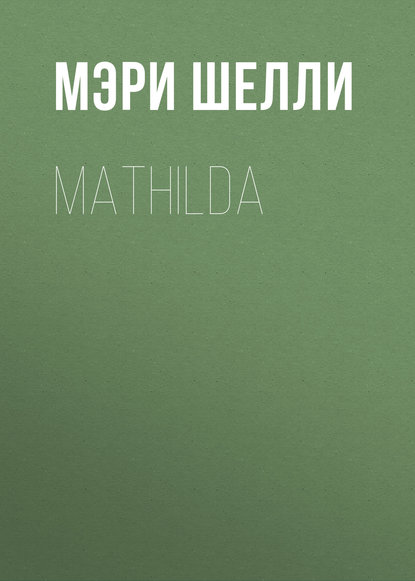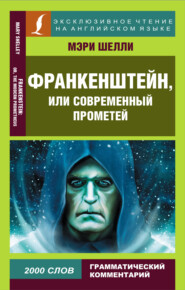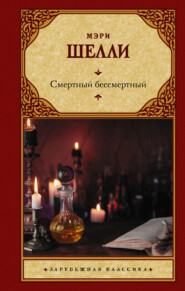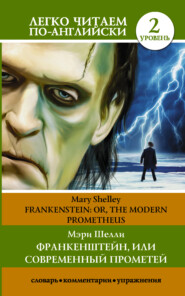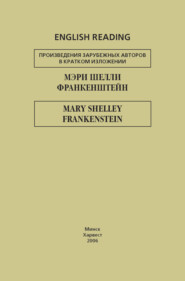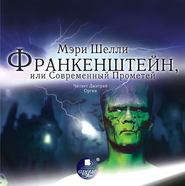По всем вопросам обращайтесь на: info@litportal.ru
(©) 2003-2024.
✖
Mathilda
Настройки чтения
Размер шрифта
Высота строк
Поля
Farewell doubts – painful meditation of evil – & the great, ever inexplicable cause of all that we see – I am content to be ignorant of all this happy that not resting my mind on any unstable theories I have come to the conclusion that of the great secret of the universe I can know nothing– There is a veil before it – my eyes are not piercing enough to see through it my arms not long enough to reach it to withdraw it – I will study the end of my being – oh thou universal love inspire me – oh thou beauty which I see glowing around me lift me to a fit understanding of thee! Such was the conclusion of my long wanderings I sought the end of my being & I found it to be knowledge of itself – Nor think this a confined study – Not only did it lead me to search the mazes of the human soul – but I found that there existed nought on earth which contained not a part of that universal beauty with which it [was] my aim & object to become acquainted – the motions of the stars of heaven the study of all that philosophers have unfolded of wondrous in nature became as it where [sic] the steps by which my soul rose to the full contemplation & enjoyment of the beautiful – Oh ye who have just escaped from the world ye know not what fountains of love will be opened in your hearts or what exquisite delight your minds will receive when the secrets of the world will be unfolded to you and ye shall become acquainted with the beauty of the universe – Your souls now growing eager for the acquirement of knowledge will then rest in its possession disengaged from every particle of evil and knowing all things ye will as it were be mingled in the universe & ye will become a part of that celestial beauty that you admire —[122 - With Diotima's conclusion here cf. her words in the Symposium: "When any one ascending from a correct system of Love, begins to contemplate this supreme beauty, he already touches the consummation of his labour. For such as discipline themselves upon this system, or are conducted by another beginning to ascend through these transitory objects which are beautiful, towards that which is beauty itself, proceeding as on steps from the love of one form to that of two, and from that of two, to that of all forms which are beautiful; and from beautiful forms to beautiful habits and institutions, and from institutions to beautiful doctrines; until, from the meditation of many doctrines, they arrive at that which is nothing else than the doctrine of the supreme beauty itself, in the knowledge and contemplation of which at length they repose." (Shelley's translation) Love, beauty, and self-knowledge are keywords not only in Plato but in Shelley's thought and poetry, and he was much concerned with the problem of the presence of good and evil. Some of these themes are discussed by Woodville in Mathilda. The repetition may have been one reason why Mary discarded the framework.]
Diotima ceased and a profound silence ensued – the youth with his cheeks flushed and his eyes burning with the fire communicated from hers still fixed them on her face which was lifted to heaven as in inspiration – The lovely female bent hers to the ground & after a deep sigh was the first to break the silence —
Oh divinest prophetess, said she – how new & to me how strange are your lessons – If such be the end of our being how wayward a course did I pursue on earth – Diotima you know not how torn affections & misery incalculable misery – withers up the soul. How petty do the actions of our earthly life appear when the whole universe is opened to our gaze – yet there our passions are deep & irrisisbable [sic] and as we are floating hopless yet clinging to hope down the impetuous stream can we perceive the beauty of its banks which alas my soul was too turbid to reflect – If knowledge is the end of our being why are passions & feelings implanted in us that hurries [sic] us from wisdom to selfconcentrated misery & narrow selfish feeling? Is it as a trial? On earth I thought that I had well fulfilled my trial & my last moments became peaceful with the reflection that I deserved no blame – but you take from me that feeling – My passions were there my all to me and the hopeless misery that possessed me shut all love & all images of beauty from my soul – Nature was to me as the blackest night & if rays of loveliness ever strayed into my darkness it was only to draw bitter tears of hopeless anguish from my eyes – Oh on earth what consolation is there to misery?
Your heart I fear, replied Diotima, was broken by your sufferings – but if you had struggled – if when you found all hope of earthly happiness wither within you while desire of it scorched your soul – if you had near you a friend to have raised you to the contemplation of beauty & the search of knowledge you would have found perhaps not new hopes spring within you but a new life distinct from that of passion by which you had before existed[123 - Mathilda did have such a friend, but, as she admits, she profited little from his teachings.]– relate to me what this misery was that thus engroses you – tell me what were the vicissitudes of feeling that you endured on earth – after death our actions & worldly interest fade as nothing before us but the traces of our feelings exist & the memories of those are what furnish us here with eternal subject of meditation.
A blush spread over the cheek of the lovely girl – Alas, replied she what a tale must I relate what dark & phre[n]zied passions must I unfold – When you Diotima lived on earth your soul seemed to mingle in love only with its own essence & to be unknowing of the various tortures which that heart endures who if it has not sympathized with has been witness of the dreadful struggles of a soul enchained by dark deep passions which were its hell & yet from which it could not escape – Are there in the peaceful language used by the inhabitants of these regions – words burning enough to paint the tortures of the human heart – Can you understand them? or can you in any way sympathize with them – alas though dead I do and my tears flow as when I lived when my memory recalls the dreadful images of the past —
– As the lovely girl spoke my own eyes filled with bitter drops – the spirit of Fantasia seemed to fade from within me and when after placing my hand before my swimming eyes I withdrew it again I found myself under the trees on the banks of the Tiber – The sun was just setting & tinging with crimson the clouds that floated over St. Peters – all was still no human voice was heard – the very air was quiet I rose – & bewildered with the grief that I felt within me the recollection of what I had heard – I hastened to the city that I might see human beings not that I might forget my wandering recollections but that I might impress on my mind what was reality & what was either dream – or at least not of this earth – The Corso of Rome was filled with carriages and as I walked up the Trinita dei' Montes I became disgusted with the crowd that I saw about me & the vacancy & want of beauty not to say deformity of the many beings who meaninglessly buzzed about me – I hastened to my room which overlooked the whole city which as night came on became tranquil – Silent lovely Rome I now gaze on thee – thy domes are illuminated by the moon – and the ghosts of lovely memories float with the night breeze among thy ruins – contemplating thy loveliness which half soothes my miserable heart I record what I have seen – Tomorrow I will again woo Fantasia to lead me to the same walks & invite her to visit me with her visions which I before neglected – Oh let me learn this lesson while yet it may be useful to me that to a mind hopeless & unhappy as mine – a moment of forgetfullness a moment [in] which it can pass out of itself is worth a life of painful recollection.
CHAP. 2
The next morning while sitting on the steps of the temple of Aesculapius in the Borghese gardens Fantasia again visited me & smilingly beckoned to me to follow her – My flight was at first heavy but the breezes commanded by the spirit to convoy me grew stronger as I advanced – a pleasing languour seized my senses & when I recovered I found my self by the Elysian fountain near Diotima – The beautiful female who[m] I had left on the point of narrating her earthly history seemed to have waited for my return and as soon as I appeared she spoke thus —[124 - In F of F – B there is another, longer version (three and a half pages) of this incident, scored out, recounting the author's return to the Elysian gardens, Diotima's consolation of Mathilda, and her request for Mathilda's story. After wandering through the alleys and woods adjacent to the gardens, the author came upon Diotima seated beside Mathilda. "It is true indeed she said our affections outlive our earthly forms and I can well sympathize in your disappointment that you do not find what you loved in the life now ended to welcome you here[.] But one day you will all meet how soon entirely depends upon yourself – It is by the acquirement of wisdom and the loss of the selfishness that is now attached to the sole feeling that possesses you that you will at last mingle in that universal world of which we all now make a divided part." Diotima urges Mathilda to tell her story, and she, hoping that by doing so she will break the bonds that weigh heavily upon her, proceeds to "tell this history of strange woe."]
notes
1
They are listed in Nitchie, Mary Shelley, Appendix II, pp. 205-208. To them should be added an unfinished and unpublished novel, Cecil, in Lord Abinger's collection.
2
On the basis of the Bodleian notebook and some information about the complete story kindly furnished me by Miss R. Glynn Grylls, I wrote an article, "Mary Shelley's Mathilda, an Unpublished Story and Its Biographical Significance," which appeared in Studies in Philology, XL (1943), 447-462. When the other manuscripts became available, I was able to use them for my book, Mary Shelley, and to draw conclusions more certain and well-founded than the conjectures I had made ten years earlier.
3
A note, probably in Richard Garnett's hand, enclosed in a MS box with the two notebooks in Lord Abinger's collection describes them as of Italian make with "slanting head bands, inserted through the covers." Professor Lewis Patton's list of the contents of the microfilms in the Duke University Library (Library Notes, No. 27, April, 1953) describes them as vellum bound, the back cover of the Mathilda notebook being missing. Lord Abinger's notebooks are on Reel 11. The Bodleian notebook is catalogued as MSS. Shelley d. 1, the Shelley-Rolls fragments as MSS. Shelley adds c. 5.
4
See note 83 to Mathilda, page 89.
5
See Posthumous Works of the Author of a Vindication of the Rights of Woman (4 vols., London, 1798), IV, 97-155.
6
See Maria Gisborne & Edward E. Williams … Their Journals and Letters, ed. by Frederick L. Jones (Norman: University of Oklahoma Press, [1951]), p. 27.
7
See Thomas Medwin, The Life of Percy Bysshe Shelley, revised, with introduction and notes by H. Buxton Forman (London, 1913), p. 252.
8
Journal, pp. 159, 160.
9
Maria Gisborne, etc., pp. 43-44.
10
Letters, I, 182.
11
Ibid., I, 224.
12
See White, Shelley, II, 40-56.
13
See Letters, II, 88, and note 23 to Mathilda.
14
See Shelley and Mary (4 vols. Privately printed [for Sir Percy and Lady Shelley], 1882), II, 338A.
15
See Mrs. Julian Marshall, The Life and Letters of Mary W. Shelley (2 vols. London: Richard Bentley & Son, 1889), I, 255.
16
Julian Works, X, 69.
17
Lives of the Most Eminent Literary and Scientific Men of Italy, Spain, and Portugal (3 vols., Nos. 63, 71, and 96 of the Rev. Dionysius Lardner's Cabinet Cyclopaedia, London, 1835-1837), II, 291-292.
18
The most significant revisions are considered in detail in the notes. The text of the opening of The Fields of Fancy, containing the fanciful framework of the story, later discarded, is printed after the text of Mathilda.
19
The name is spelled thus in the MSS of Mathilda and The Fields of Fancy, though in the printed Journal (taken from Shelley and Mary) and in the Letters it is spelled Matilda. In the MS of the journal, however, it is spelled first Matilda, later Mathilda.
20
Mary has here added detail and contrast to the description in F of F – A, in which the passage "save a few black patches … on the plain ground" does not appear.
21





